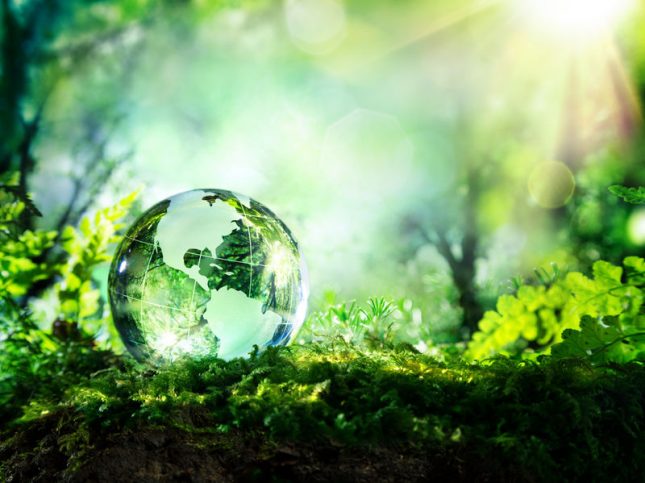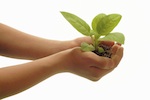Our 9 year old daughter had a sobering message on the drive home from school the other day.
It went something like this, “we have to start doing something now Dad or global warming will be really bad by the time I’m 50”
“Ouch.” Message received.
But she has a point and obviously her teacher is instilling in her class the need to look after our environment and think about what we are doing to our lovely world.
As the saying goes ‘timing is everything’ and now seems to be the time to stop just hoping that everything will be okay for our children’s children.
Recently I was given a book called “How to Change the World for Fifteen Bucks”
It’s a NZ version of the English best seller “How to Change the World for a Fiver”. In Australia it was adapted to “How to Change the World for Ten Bucks” because that is what the book costs.
Behind the book is a movement called “We Are What We Do”. I understand it’s not a cult or a religion, just a bunch of people who aim to inspire people to use the “everyday actions” to try and change the world. Simple really!
They have come up with 100 simple things that you can do every day to improve our environment and the well-being of our families and communities. Basically little tips on saving our resources and making us happier, kinder individuals.
Some of the environmental suggestions make a lot of sense and, for me, fall into the “Why didn’t I think of that” category. They’re good ones to pass onto your kids.
Saving Water and Electricity
For example, we all know the old teeth cleaning ritual at bedtime is very important for kids, but from now on insist they turn on and off the tap while they’re brushing.
Many of us keep the water running all the time and this simple act wastes huge amounts of water – up to 9 litres of water every time you brush your teeth! 9 litres! That works out at 26,000 litres for one family each year.
I know you’re probably sick of hearing it but Plastic Bags – the statistics are incredible. Apparently Australians and New Zealanders use up to 500 plastic bags each every year. That’s 6.8 billion plastic bags all sitting in huge land fill sites taking hundreds of years to decompose and producing tonnes of horrible methane gas – the stuff that contributes to global warming. All of that carnage from a humble plastic shopping bag.
Once you get the hang of remembering to take in those bigger re-usable bags into the supermarket it’s really quite easy, a bit like shopping in the old days.
I find this one harder to remember, but switching off appliances at the wall is a huge saver.
Apparently a video recorder on standby uses almost as much electricity as one playing a tape. A TV is in the same boat and mobile phone chargers left plugged in when not charging waste massive amounts of power.
The Computer is another one and by switching it off at the wall you are not only saving it from overheating which could damage the machine, but powered up appliances can also cause electrical fires. This happened to a family member of ours a few years ago and they lost their house. It also ensures you save any important documents when you are shutting down.
I know we’re guilty of leaving lights on unnecessarily in our house and this is an easy one to keep reminding the kids to get in to the habit of doing.
In the UK they have related this to the good old cuppa – one office lit up all night wastes enough energy to make 1,000 cups of tea. And only filling your kettle with the water you need for that cup of tea saves on electricity and water.
Community Well-being
“How to Change the World for Fifteen Bucks” also talks about community well-being and how every so often its worth stopping to think about the communities we live in and how we can make them more meaningful for our children.
It’s an old cliché, but getting to know your neighbours or just being plain “neighbourly” can be a really rewarding thing to do.
We are fortunate enough to live in a street where down our end just about everyone knows everyone else. We find the benefits are huge and it gives us all a sense of belonging.
So even though we’re in the heart of busy Auckland, it feels like we are in small town New Zealand. The children play at each other’s houses and, while the adults don’t live in each others pockets, we certainly care and keep an eye out for each other.
Encouraging your kids to make the effort to get on with an elderly neighbour can be a good thing too. Talk to your children about not just seeing elderly neigbours as old, but rather as experienced. They’ll have some really cool stories to tell.
I read a nice story about an eight year old girl who spends every Saturday morning with her 72 year old neighbour. She gets to learn all about how cool Frank Sinatra was and he gets to try and understand Britney Spears!
I’m sure you’ve also heard it many times about the research that says how many more benefits there are for children if they actually sit down with the adults to have dinner – without the TV on.
They say kids are much less likely to suffer from anxiety or stress disorders if they spend meal time with their families.
Again with our busy hectic lives, this is often very hard to achieve, but it’s worth remembering when you can. I used to love the old Sunday Lunch ritual in the old days!
Reading to Your Kids
And this is another oldie but a goodie. Reading to your children.
Can you remember how much you enjoyed being read to as a kid? How your imagination was captivated. Listening to stories actually helps rewire a child’s brain, speeds up their grasp of language, helps reduce stress and boosts self-esteem. And I think you can feel that yourself when you read to children – sense a feeling of calm and peace come over them. As long as you’re not interrupted by the older brother wanting help with the maths homework!
Made-up stories are good too. Without fail I tell the same made-up story to my 4 year old every night – the exact same story every night for more than a year. It’s about her Daddy and his Daddy (Poppa). I’ve told the story so many times I’m bored to tears with it but she refuses to let me try something new. It has become a ritual, the final little yarn before she goes off to sleep and despite going over the same story every night it works a treat and sends her happily off to sleep.
So maybe it’s good to be reminded now and again, not only to do your bit to save the planet, but also, amidst the rush of our busy lives, to keep those kids feeling secure and loved. Every little bit helps.






